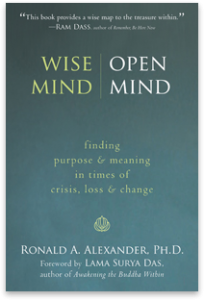
We often feel an extreme sense of helplessness and lack of control when we are in a time of great crisis, such as a global pandemic. When this happens, people often start to over eat, drink, shop, gamble, worry and ruminate. This can lead into an endlessly spiral of excessive fear, worry and catastrophizing, which I call “constellation behavior.”
Meditation, prayer, or contemplation are effective methods to break the negative cycles of thought, feelings and sensations that when left unchecked leech the mind of the more healthy and positive neurons in your brain, whose job it is to bring balance, harmony and equanimity to your immune system. To break this reclusive loop, we first need to identify the negative, unwholesome patterns. We can then interrupt them through mindfulness meditation by flooding the brain with wholesome emotions and thoughts.
Recent advances in neuro science understand that meditation supports a healthy brain and balance mind. Twenty minutes once or twice a day can turn on the production of millions of healthy new neurons in the brain, including the region responsible for infusing your immune system with positive molecular cell configuration. Permeating your brain with wholesome neurons leads to changes in your mind as well as your physical and energetic (spiritual) bodies.
To help you regain your wholesome emotions here’s a short meditation from my book “Wise Mind, Open Mind.
Recapture Wholesome Emotions
 Take a comfortable seat and begin to mindfully breathe. In your mind’s eye, return to a location where you had very positive experiences. It may be a place you associate with being comfortable, enthusiastic and eager, appreciated and loved, or successful. It could be a place from your past: the park where you ate your brown-bag lunch every day when you were beginning your career, or a library where you spent countless hours as a child lost in the world of ideas and books. Any place with positive associations for you will work in this exercise.
Take a comfortable seat and begin to mindfully breathe. In your mind’s eye, return to a location where you had very positive experiences. It may be a place you associate with being comfortable, enthusiastic and eager, appreciated and loved, or successful. It could be a place from your past: the park where you ate your brown-bag lunch every day when you were beginning your career, or a library where you spent countless hours as a child lost in the world of ideas and books. Any place with positive associations for you will work in this exercise.
Allow yourself to experience the wholesome emotions and sensations that arise for you. Let your observing mind label them as you bask in these energizing feelings (for example, acceptance, harmony, enthusiasm, and contentment).
Feel a sense of belonging. Be mindful and fully present with all that’s around you. Don’t allow your thoughts to take you elsewhere. Remember how you used to feel when you were there, and experience those emotions right now, in the moment.
After luxuriating in these enriching emotions, note what you’ve just experienced. Then ask yourself:
- Which of these emotions can help me right now?
- In what way can these emotions serve me?
- What have I discovered about myself? Have I discovered a forgotten ability? (For instance, had you forgotten that you could feel a particular emotion?)
You may wish to write your answers in a mindfulness journal. You might also want to repeat this exercise several times, mindfully journeying to different locations.
Wholesome resolve and awe at the mystery provides a steadiness far more satisfying than the false security of pessimism and cynicism. To sit and look at the vastness of an ocean, the lushness of a mountainside covered with fir trees, or the swaths of stars in the night sky can help you to appreciate that you can never explain or explore every nook in the mystery of existence. Immersed in curiosity, you begin the art of creative transformation.
In short, if you want to energize your immune system “Worry Less / Meditate More.”
Adapted from Ronald Alexander’s book “Wise Mind, Open Mind: Finding Purpose and Meaning in Times of Crisis, Loss, and Change”